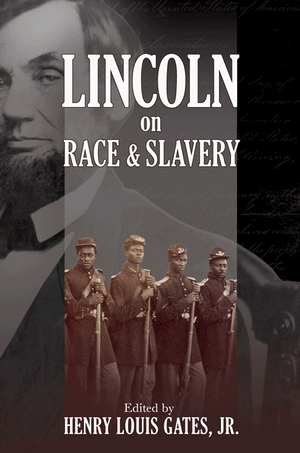While most of the high-profile books hoping to cash in on the Lincoln bicentennial have been released steadily over the past few weeks, there are still two significant new offerings this week. Both published from university presses, one is yet another companion book to a Lincoln exhibit and the other is a new volume on Lincoln and slavery.
Releasing on February 10
The Tsar and the President: Alexander II and Abraham Lincoln: Liberator and Emancipator edited by Marilyn Pfeifer Swezey (University of Wisconsin Press, 2009, paperback, 112 pages)
 This book is a companion to a traveling exposition, "The Tsar and the President," which premiered last year at The Oshkosh Public Museum and currently is on display at the Kansas City Union Station Museum. The display attempts to compare the life of the two great liberators of the mid-19th Century, Tsar Alexander II of Russia, who outlawed serfdom in 1861, and President Abraham Lincoln of the United States, who famously signed the Emancipation Proclamation January 1, 1863 and worked to ensure the passage of the 13th Amendment.
This book is a companion to a traveling exposition, "The Tsar and the President," which premiered last year at The Oshkosh Public Museum and currently is on display at the Kansas City Union Station Museum. The display attempts to compare the life of the two great liberators of the mid-19th Century, Tsar Alexander II of Russia, who outlawed serfdom in 1861, and President Abraham Lincoln of the United States, who famously signed the Emancipation Proclamation January 1, 1863 and worked to ensure the passage of the 13th Amendment.The two men were very different. Alexander was well educated; Lincoln received little formal education. Alexander was raised in the elite, ruling class; Lincoln grew up poor and scraped his way into relative financial comfort. Both, interestingly, were assassinated: Lincoln in 1865 and Alexander in 1881. But they are both remembered most for their emancipation decisions.
This is an intriguing comparison, if only because it rightly suggests that the slavery issue was not unique to the United States. Indeed, in ways that have probably deserve more significant study, abolitionism was an international movement; it might be easy to exaggerate its influence, but it is important to understand that the conflict over slavery/serfdom was not only an internal issue in either the US or Russia.
Lincoln on Race and Slavery edited by Henry Louis Gates, Jr., and Donald Yacovone (Princeton University Press, 2009, hardcover, 408 pages)
 This book presents Lincoln's own words on race and slavery, offered during his life in speeches and letters. Bringing together seventy pieces that Lincoln wrote during his lifetime -- from his protest as an Illinois legislator against slavery in 1837 to his final public address on three days before his assassination in 1865 -- the book offers an introduction for each selection in addition to a general introduction by Gates.
This book presents Lincoln's own words on race and slavery, offered during his life in speeches and letters. Bringing together seventy pieces that Lincoln wrote during his lifetime -- from his protest as an Illinois legislator against slavery in 1837 to his final public address on three days before his assassination in 1865 -- the book offers an introduction for each selection in addition to a general introduction by Gates.This collection seems to mostly repackage material available in many other Lincoln anthologies. However, for someone particularly interested in this subject, the editorial context offered by the noted African-American scholar Henry Louis Gates might make this book worth owning.
No comments:
Post a Comment